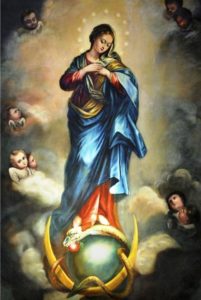Podcast: Play in new window | Download (Duration: 5:09 — 3.7MB) | Embed
Subscribe: Apple Podcasts | Spotify | Amazon Music | Android | Pandora | iHeartRadio | JioSaavn | Podchaser | Gaana | Podcast Index | Email | TuneIn | Deezer | Anghami | RSS | More
An Advent Journey for the Discerning Heart:
Prepare your heart for Christ through Scripture, the saints, and the gentle practice of daily listening.
Week Two: Following the Voice of Christ
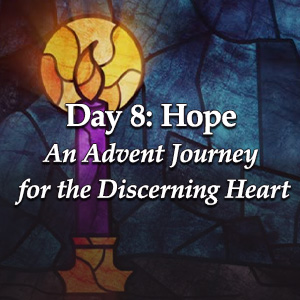 DAY 8 – Hope
DAY 8 – Hope
“Let us hold fast the confession of our hope without wavering, for he who promised is faithful.”
Hebrews 10.23
Hope is the quiet strength that anchors the heart in God’s promises. It is a theological virtue, not a feeling we generate. God Himself pours it into the soul through grace. Because of this, hope is steady even when circumstances shift, even when emotions rise and fall, even when darkness feels close.
Hope looks at God before it looks at the problem. Hope remembers that God keeps His promises. The greatest fulfillment of those promises is the gift of Christ, given at a moment in history when all seemed lost. Advent teaches us to return to this truth every day. Christ is the proof that God keeps His word.
Yet hope is not only about the great moments of salvation history. It is also about the personal ways God has been faithful in your life. Each moment He sustained you, guided you, protected you, forgave you, or brought you through something difficult becomes a touchstone of hope. Hope grows when the heart remembers.
Hope does not deny suffering. It meets suffering with trust in a God who is larger than every fear and stronger than every obstacle. Hope believes that God is already present and already at work.
Journey with the Saints –
Ven Bruno Lanteri
“Do not lose heart. Be confident. God is love.”
Venerable Bruno Lanteri
Venerable Bruno taught that Christian hope rests entirely on the mercy and fidelity of God. He understood hope as a grace that lifts the soul when it feels weak or discouraged. His famous spiritual counsel, “Begin again,” expresses this beautifully. Hope always makes it possible to take the next step toward God.
For Ven. Bruno, hope was not optimism. It was confidence in God’s character. He believed that no failure, no weakness, and no discouragement could block the action of grace if a soul continued to turn toward God with trust. Hope leans on God, not on self.
Ven. Bruno also insisted that hope grows when a person remembers God’s past faithfulness. Every grace God has already given becomes a promise of what He will continue to do. Hope expands the heart to expect God’s goodness again.
Reflection for the Listening Heart
Today invites you to let your heart rest in God’s fidelity. Hope grows when you stop trying to hold everything together and allow God to carry what you cannot. Hope remembers that God has led you before and He will lead you again.
Look back over your life. Where has God kept His promises to you. Where has He shown you love, direction, or protection. These memories are seeds of hope. They strengthen your trust in the God who remains faithful.
Ask yourself: Where do I need hope today. How is God inviting me to remember His faithfulness?
A Simple Practice for Today
Recall one moment in your life when God was clearly present. Thank Him for it. Later in the day, pray quietly, “Lord, You have been faithful. Strengthen my hope.” Let this remembrance become a place of trust.
Prayer
Lord Jesus, strengthen within me the virtue of hope. Help me to trust in Your promises and to remember the many ways You have been faithful. Pour Your grace into my heart so I may rest in Your love and look to You with confidence. Teach me to hope in You always. Amen.
For more of the episodes of
An Advent Journey for the Discerning Heart with Kris McGregor visit here
Citations for Day 8
Hebrews 10.23 RSV
Venerable Bruno Lanteri, spiritual writings
© Discerning Hearts. All rights reserved.

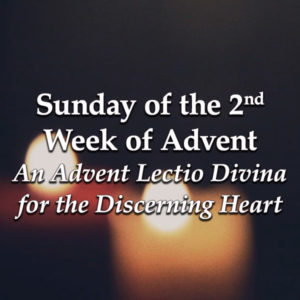

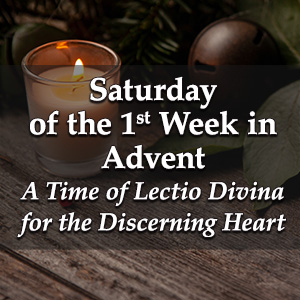
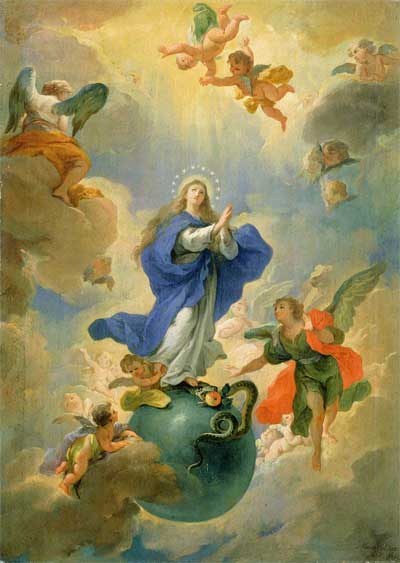
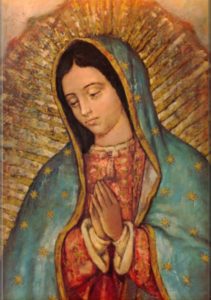
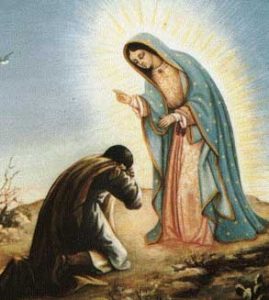
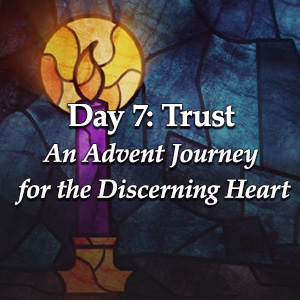 DAY 7 – Trust
DAY 7 – Trust
